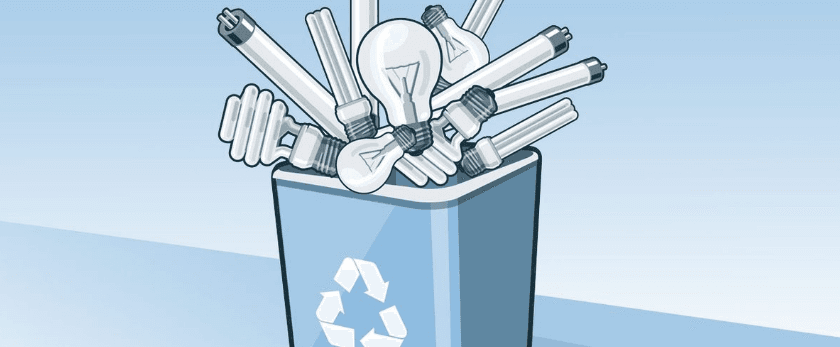In our quest for a more eco-friendly lifestyle, one often-overlooked aspect is the proper disposal of fluorescent light bulbs. These energy-efficient wonders have become commonplace in our homes and workplaces, but they contain hazardous materials that can harm our environment if not handled correctly. In this informative article, we'll address common questions and provide practical solutions for disposing of fluorescent bulbs responsibly.
Can You Take Fluorescent Tubes to the Tip?
Absolutely, you can! Many local waste disposal facilities, commonly referred to as "the tip" or recycling centers, accept fluorescent light tubes. However, it's essential to follow a few guidelines to ensure safe and eco-friendly disposal:
-
Contact Your Local Recycling Center: Before making the trip, check with your local recycling center or waste management facility. They may have specific regulations or hours of operation for accepting fluorescent bulbs.
-
Handle with Care: Fluorescent tubes are fragile, and they contain a small amount of mercury vapor. To prevent breakage, transport them in their original packaging or wrap them in bubble wrap or newspaper.
-
Never Throw Them in the Trash: Disposing of fluorescent bulbs in regular household waste is not only harmful to the environment but may also be illegal in some areas due to their hazardous nature.

Are Fluorescent Tubes Hazardous Waste?
Yes, fluorescent tubes are considered hazardous waste due to their mercury content. Mercury is a toxic heavy metal that poses significant environmental and health risks if not properly managed. However, this doesn't mean you should avoid using fluorescent bulbs altogether. Instead, follow these steps to handle them responsibly:
-
Recycle: The best way to deal with fluorescent tubes is to recycle them. Recycling facilities are equipped to capture and safely dispose of the mercury while salvaging other valuable materials.
-
Search for Local Collection Programs: Many areas offer specialized collection programs or drop-off locations for hazardous waste, including fluorescent bulbs. Check with your local government or recycling centers to find the nearest collection point.
-
Consider LED Alternatives: As technology advances, LED light bulbs have become a more energy-efficient and environmentally friendly alternative to fluorescent tubes. When the time comes to replace your old bulbs, consider making the switch to LEDs.
Can You Put Light Bulbs in a Skip?
The answer here depends on the type of skip and local regulations. Skips, often used for construction and renovation waste, may or may not accept light bulbs. To ensure responsible disposal, follow these steps:
-
Check Skip Provider Policies: Contact the skip rental company or the organization responsible for the skip. Ask about their policies regarding the disposal of light bulbs.
-
Separate Bulbs: If your skip provider permits light bulb disposal, it's crucial to separate fluorescent tubes from other waste. Keep them in their original packaging or wrap them securely to prevent breakage.
-
Follow Local Laws: Be aware of any local regulations or restrictions related to the disposal of hazardous waste in skips. Ignoring these rules could result in fines or penalties.
Conclusion
As we strive for a more sustainable future, responsible disposal of fluorescent light bulbs is a small yet meaningful step we can all take. By recycling these bulbs and adhering to local regulations, we not only protect our environment from harmful mercury contamination but also pave the way for a greener, brighter tomorrow. Together, we can make a difference and inspire positive change in our communities.










